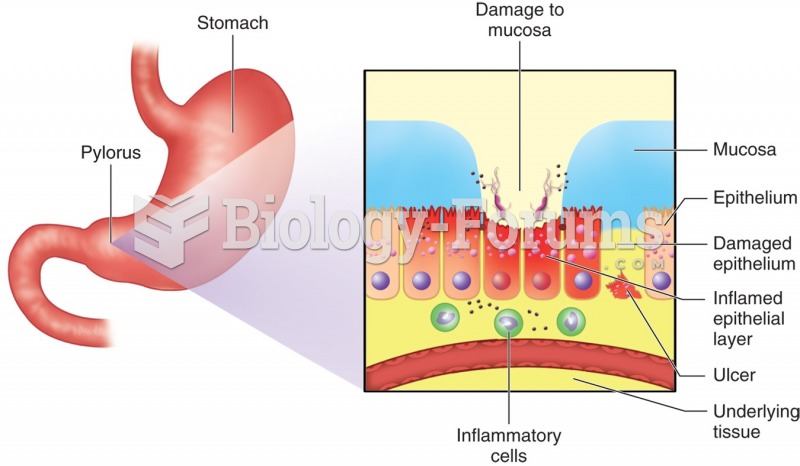|
|
|
There are 20 feet of blood vessels in each square inch of human skin.
GI conditions that will keep you out of the U.S. armed services include ulcers, varices, fistulas, esophagitis, gastritis, congenital abnormalities, inflammatory bowel disease, enteritis, colitis, proctitis, duodenal diverticula, malabsorption syndromes, hepatitis, cirrhosis, cysts, abscesses, pancreatitis, polyps, certain hemorrhoids, splenomegaly, hernias, recent abdominal surgery, GI bypass or stomach stapling, and artificial GI openings.
People about to have surgery must tell their health care providers about all supplements they take.
A recent study has found that following a diet rich in berries may slow down the aging process of the brain. This diet apparently helps to keep dopamine levels much higher than are seen in normal individuals who do not eat berries as a regular part of their diet as they enter their later years.
The first monoclonal antibodies were made exclusively from mouse cells. Some are now fully human, which means they are likely to be safer and may be more effective than older monoclonal antibodies.
 Young boy with characteristic nasal crease from the repeated action of the “nasal salute” caused ...
Young boy with characteristic nasal crease from the repeated action of the “nasal salute” caused ...
 Meningocele. (a) A meningocele is a herniation of the meninges, usually associated with the spinal c
Meningocele. (a) A meningocele is a herniation of the meninges, usually associated with the spinal c




